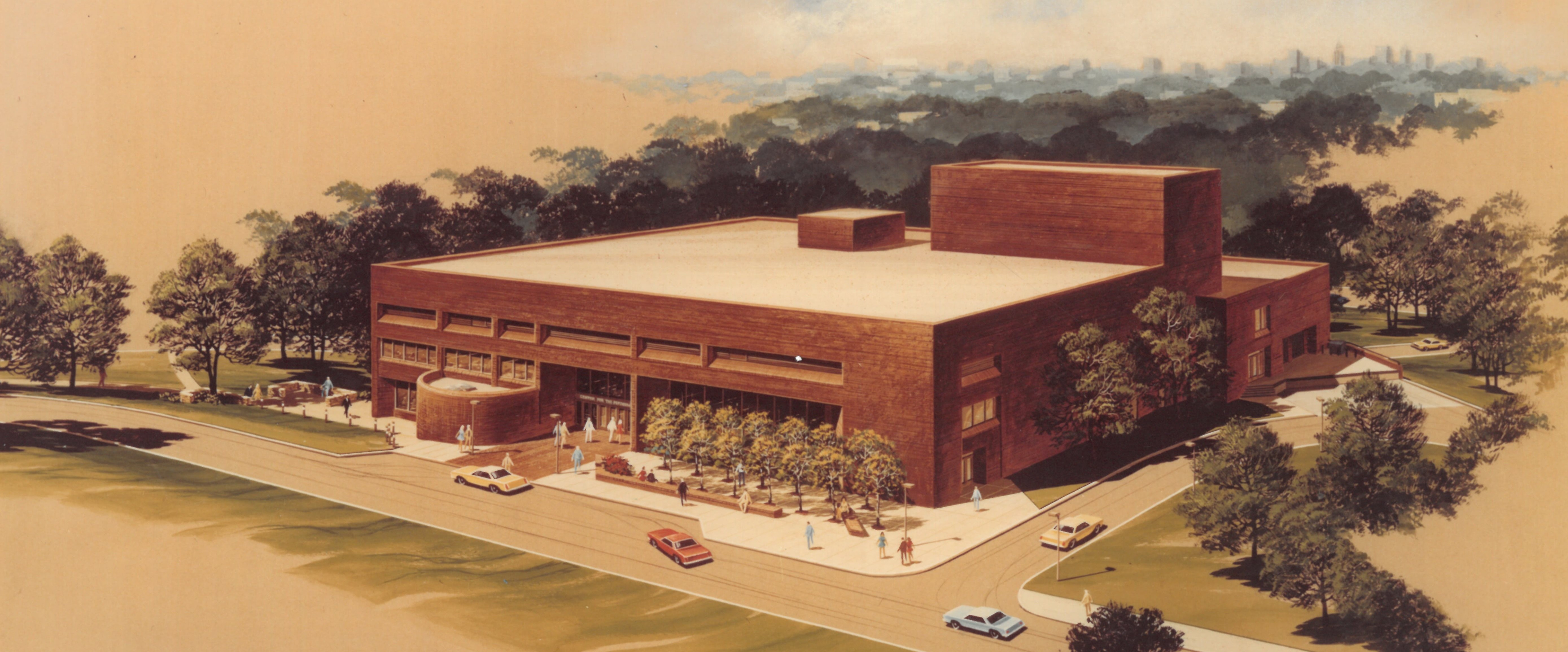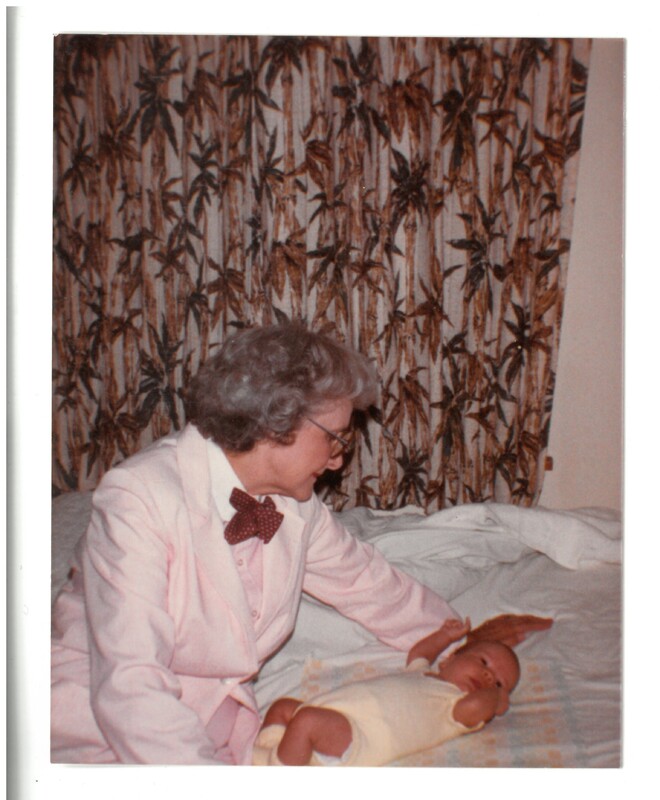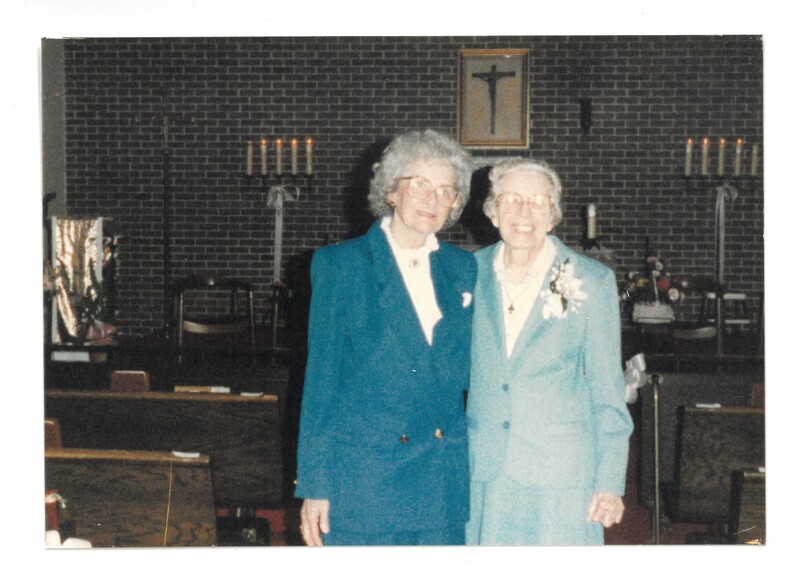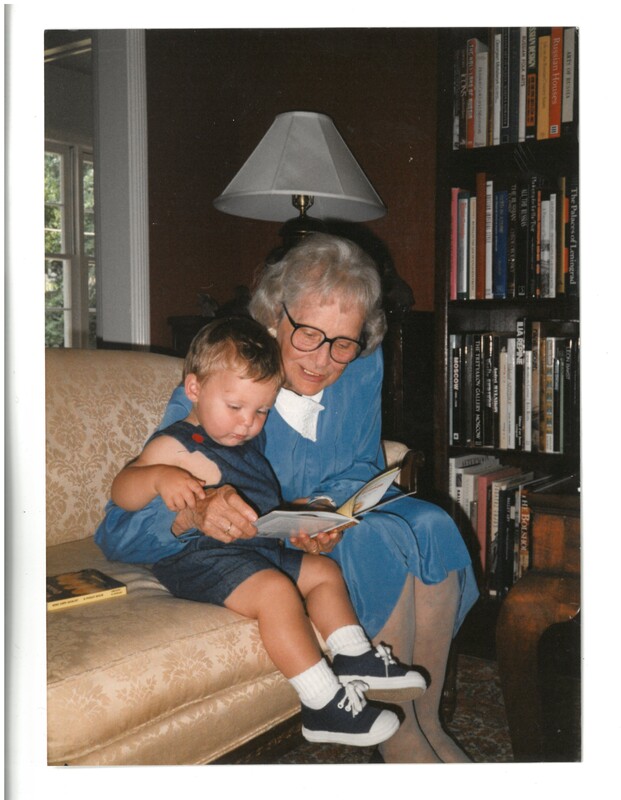Retirement and Legacy
After a long and successful career, Dr. McIlrath retired in 1985 at age 68. In a written interview, Dr. McIlrath said, “After having been there [at UMKC] for over 32 years, I felt they all deserved to be left with a new artistic director and a new chairman of the Department of Theatre." She was also experiencing increasing health difficulties. However, regarding US theatre she wrote, “I wish I were younger, for much remains to be done.”30
Dr. McIlrath wrote that she was “submerged with letters, gifts, and cards [from friends, colleagues, and former students] which both tore at my heart and at the same time sent my spirits soaring."37
The trustees of the William B. Moorhead Memorial Trust created a scholarship in Dr. McIlrath’s name to help support theatre education at UMKC, and for years afterward Dr. McIlrath received cards and letters from scholarship recipients.16
Dr. McIlrath helped select her successor at the Missouri Repertory Theatre (MRT), George Keathley, and continued to influence operations at MRT and the UMKC Theatre Department. She wrote, “I keep aware of matters and see all the plays and keep tabs indirectly on all the students’ progress on the Master of Fine Arts: Theatre (Acting, Directing, Designs (Scenic and Costume) and Technology."30 She didn’t always agree with the choices made by the new MRT leaders. For example, in 1991 MRT discontinued its touring program, and Dr. McIlrath wrote a passionate letter advocating for keeping the program. After asserting that Kansas City was “the performing arts capitol of this state and this region, and we owe our non-urban areas of Missouri this service,” Dr. McIlrath said,
“Please forgive my temerity in writing. I deeply love the excellence of artistry at The 1991 Rep, and everyone involved in its mammoth achievements. But, right or wrong, I cannot live with myself if I do not speak out, this time at least, against what I think could be a grave error."39
Similarly, when an MRT production of Antigone by Sophocles received a negative review in The Kansas City Star in 1996, Dr. McIlrath wrote a contradictory letter to the paper praising the production. Although it appears that the letter was never published, a draft survives in Dr. McIlrath’s papers. She wrote that the actors and crew were “all working together so beautifully to achieve the majesty demanded by both the genius of Sophocles and the presentational traditions of great Greek tragedy- and at the same time, achieving as well a not-too-often found emotional intensity.”29
Dr. McIlrath also worked on writing a book about the history of the Missouri Repertory Theatre, which she never completed.
Dr. McIlrath passed away in 1999 at age 82. Anne Einig, whose graduate thesis focused on Dr. McIlrath, wrote that Dr. McIlrath’s family acted as “a circle of love and warmth enveloping her and guiding her on her final journey."10 Several years after her death, in 2006, Dr. McIlrath’s friends, family and colleagues came together to create a booklet titled “A Cookbook of Memories”. They shared memories and stories of Dr. McIlrath, ranging from her childhood to her later life. The stories are an invaluable record of Dr. McIlrath’s life, and the respect others felt for her. As Pat Abts, a former UMKC student, said, Dr. McIlrath “was the personification of the UMKC Theatre and the Rep."1
Dr. McIlrath left a legacy of creativity, professionalism, and kindness which continues to the present day. She founded the Kansas City Repertory Theatre and influenced the revival of live theatre in Kansas City. In addition, she was instrumental in the construction of the James C. Olsen Performing Arts Center. She was widely beloved among students, employees, friends, and family members, who continued to remember her fondly.
In 2019, Dr. McIlrath was inducted into the Starr Women’s Hall of Fame, which seeks to highlight the work of notable Kansas City women. The LaBudde Special Collections preserves Dr. McIlrath’s documents so that future scholars can continue to study Dr. McIlrath’s life and legacy. These documents are available to the public and provide vital information on the history of Kansas City theatre.
Dr. McIlrath “was the personification of the UMKC Theatre and the Rep."Former UMKC student, Pat Abts




